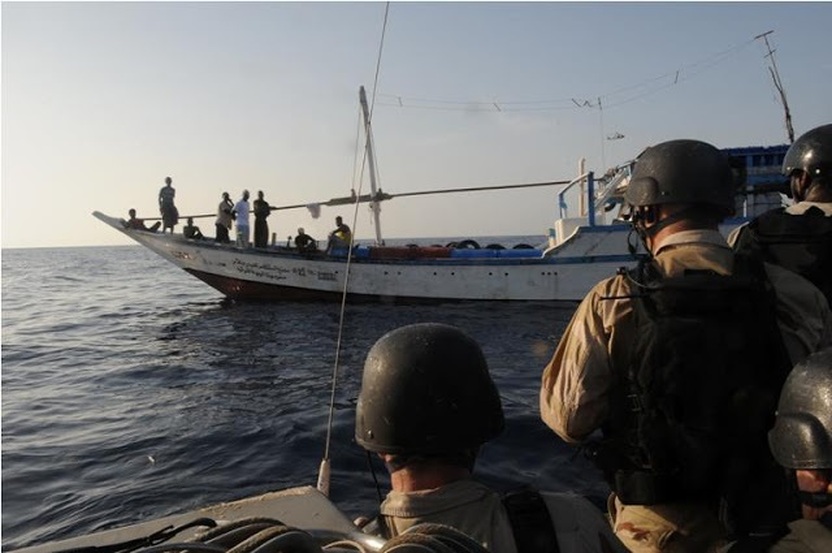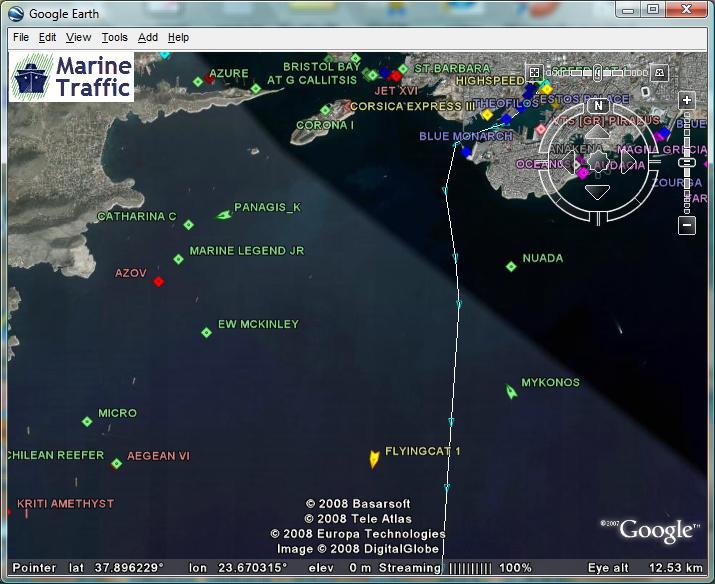I the original Executive Order Trump signed to suspend travel from a handful of countries, Iraq was included. When the Executive Order was legally challenged by several courts, yet another Executive Order was issued to excluded Iraq. This decision was made due to the increased security cooperation between the United States and Iraq. Okay so what is the problem? How about other Iraqis that already lied on immigration filings or committed crimes and lied? Fingerprints were the key after the kidnapping. Ever wonder who else is in Virginia? There are plenty….
President Trump should have taken several other preliminary steps prior to those Executive Orders including suspending the entire visa waiver program. But back to Iraq…. and the Al Mahdi Militia, which is still active and operations under variations of the name:
The Mahdi Army, also known as Jaysh al-Mahdi (JAM), was formed by Muqtada al-Sadr in June 2003 in response to the U.S. invasion of Iraq. [3] [4] Muqtada al-Sadr is the son of Grand Ayatollah Mohammed Sadiq al-Sadr, who founded the prominent Sadrist Movement in the 1980s, a vehemently nationalist political movement popular among Iraq’s Shiite lower class. After Mohammed Sadiq al-Sadr was assassinated in 1999, presumably by the Hussein regime, Muqtada al-Sadr succeeded him as the leader of the Sadrists as well as one of the most powerful and respected Shiite clerics in Iraq. [5] [6] [7] Following the U.S. invasion in 2003, Sadr called upon the Sadrist to join his new militia, the Mahdi Army, with the goal of expelling the U.S. coalition from Iraq and establishing an Iraqi Shiite government. Some of the group’s initial three hundred fighters were recruited in Kuwait and Saudi Arabia and together with their Iraqi counterparts were sent to Hezbollah camps in Lebanon for training. [8] [9] More here.
Iraqi Refugees Arrested and Charged with Immigration Fraud
ALEXANDRIA, Va. – Two Iraqi refugees living in Northern Virginia were arrested this morning and charged along with another individual with immigration fraud.
The defendants arrested this morning are Yousif Al Mashhandani (“Yousif”), 35, of Vienna, and Adil Hasan, 38, of Burke, who are full biological brothers. The third individual charged is Enas Ibrahim, 32, also of Burke, who is the wife of Hasan. Each are charged with attempting to obtain naturalization contrary to law. The defendants will have their initial appearance today in front of Magistrate Judge Ivan D. Davis at 2 p.m. at the federal courthouse in Alexandria.
According to the affidavit in support of the criminal complaint, on Nov. 1, 2004, a United States citizen, identified as R.H., was kidnapped in Iraq and held with other hostages for months in horrible conditions in an underground bunker. After a raid in 2005 freed the hostages, authorities detained Majid Al Mashhadani (“Majid”), who is a full biological brother of Yousif and Adil Hasan, and he admitted his complicity in the kidnapping of R.H.
According to the affidavit in support of the criminal complaint, Yousif was admitted into the United States as a refugee in 2008. In May 2013, Yousif resided in Vienna and applied for naturalization as a United States citizen. In connection with Yousif’s applications for citizenship, his fingerprints were taken. According to an FBI fingerprint specialist, analysis conducted in November 2013 determined that Yousif’s fingerprints match those found on a document at the underground bunker where forces rescued R.H. and others in Iraq in 2005.
According to the affidavit in support of the criminal complaint, Yousif, Hasan, and Ibrahim are lawful permanent residents and have applied to naturalize and become United States citizens. On various applications and forms throughout their respective immigration processes, each has provided and extensive list of family members and information of their respective family trees; however, none ever listed any reference to Majid.
According to the affidavit in support of the criminal complaint, on March 4, 2016, FBI agents interviewed Yousif, Hasan and Ibrahim. When FBI agents asked Yousif why he failed to include reference to Majid on the family tree form, Yousif said he omitted reference to Majid because, when he was a refugee, he was told by others applying for refugee status that he would not be allowed into the United States if any immediate family members had a criminal background. Hasan admitted to FBI agents that Majid was his brother, and Hasan and Ibrahim each admitted they discussed not including Majid’s name on their applications for refugee status because their connection to Majid might delay their ability to gain such status.
According to the affidavit in support of the criminal complaint, to justify his application for refugee status, Yousif reported that in 2006, while working as an anti-corruption investigator for the Iraqi Commission on Public Integrity in Iraq, he started receiving threats from a Shiite militia known as the “Al Mahdi Militia,” in order to coerce Yousif to drop a particular corruption investigation. Yousif said that in May 2006 Adil was kidnapped by the Al Mahdi Militia, and only released after Yousif arranged to drop the investigation in question and helped pay a large ransom. Yousif said that after Adil was released, he reopened the corruption investigation, only to flee to Jordon in October 2006 after his parents’ house was burned down.
According to the affidavit in support of the criminal complaint, to justify his application for refugee status, Hasan provided sworn testimony that, in 2006, he had been kidnapped and tortured by members of the Al Mahdi Army and held for nearly a month. Hasan said he was released upon the payment of a ransom of $20,000. In an interview by FBI agents in April 2016, Hasan said he was threatened in Iraq on two occasions, but made no mention of being kidnapped, held hostage, and tortured for nearly a month. In a subsequent interview in October 2016, FBI agents confronted Hasan about the discrepancy in his stories and Hasan admitted to making false statements and creating his persecution story.
Each defendant faces a maximum penalty of 10 years in prison if convicted. Actual sentences for federal crimes are typically less than the maximum penalties. A federal district court judge will determine any sentence after taking into account the U.S. Sentencing Guidelines and other statutory factors.
Dana J. Boente, Acting Deputy Attorney General and U.S. Attorney for the Eastern District of Virginia; Andrew W. Vale, Assistant Director in Charge of the FBI’s Washington Field Office; Patrick J. Lechleitner, Special Agent in Charge of U.S. Immigration and Customs Enforcement’s (ICE) Homeland Security Investigations (HSI) Washington, D.C., made the announcement. The FBI’s Joint Terrorism Task Force, which includes ICE/HSI and U.S. Citizenship and Immigration Services, investigated the case. Assistant U.S. Attorneys Gordon D. Kromberg and Colleen E. Garcia are prosecuting the case.
A copy of this press release is located on the website of the U.S. Attorney’s Office for the Eastern District of Virginia. Related court documents and information is located on the website of the District Court for the Eastern District of Virginia or on PACER by searching for Case No. 1:17-mj-143.
A criminal complaint contains allegations that a defendant has committed a crime. Every defendant is presumed to be innocent until and unless proven guilty in court.



 Haftar was protected by and lived in the U.S., becoming a citizen. We dispatched him to Libya to launch an interim government. Now he and Egypt both have turned to Russia for full control and support, Putin has complied, happily. John Kerry, Hillary Clinton and Barack Obama are not responding to calls on line 4. Hah…
Haftar was protected by and lived in the U.S., becoming a citizen. We dispatched him to Libya to launch an interim government. Now he and Egypt both have turned to Russia for full control and support, Putin has complied, happily. John Kerry, Hillary Clinton and Barack Obama are not responding to calls on line 4. Hah… Newsweek
Newsweek


 US SOF base at cement plant between Manbij, Raqqa.
US SOF base at cement plant between Manbij, Raqqa.